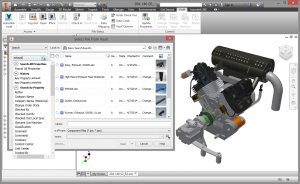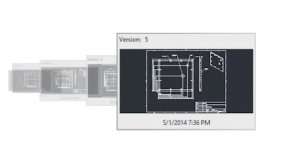5 Reasons You Should Be Using Vault with Inventor…Even If You’re the Only Designer

There are two types of people in this world. Those who have thousands of unread e-mail in their inbox at any given time and those with virtually none. If you’re one of the former and obsessive organization is not in your DNA, a single user Vault setup just might be something worth looking at. And if you’re one of the latter – well, you’ll probably like it too. Let’s take a look at why…
Moving or renaming files
PDM systems are generally designed to provide similar usability to Windows Explorer with the added benefit of not breaking things when you make changes. So, you can drag and drop a file or folder within the system just as you would do normally, without worrying what will happen the next time you open it or another file where it is used.
And with Vault, you can rename files exactly as you would inside Windows Explorer; the difference is that the software makes sure all links remain intact. You can also apply naming schemes to entire batches of files. This is especially useful when copying a design or working on a project that involves hundreds or thousands of files.
Copying designs

One of the most powerful tools included with Vault is the ability to simplify design reuse into a single step. Once the top-level assembly is selected, every file referenced in the assembly is identified and included in the copy operation. From there, you can pick and choose which files you want to copy, reuse, or remove from the new project, and then define a scheme for renaming the copied files.
Where used
Since relationships between files are already being tracked, in a single click you can see everywhere a part or subassembly is used. It works in the opposite direction as well, allowing you to see every file used by a part or assembly.
Versioning 
Versioning capabilities keep track of all the changes you make during the design of the product while maintaining the same file name. It logs the who, what, and when behind each change, providing traceability and context for each update to the design. You always know which version is the latest. When paired with check-out/check-in capabilities, versioning prevents conflicts from developing when multiple engineers are contributing to the same files in the project.
Metadata
Vault is also an excellent way to index, search, and modify Inventor iProperties. Not only can these be used to track down what you’re looking for, you can edit a single file or an entire batch of files all at once. And it’s not limited to just the standard iProperties – you can include custom properties through the administrator settings.
So even if you’re designing all on your own, there’s a case to be made for using the version of Vault that comes with ever license of Inventor.
The post 5 Reasons You Should Be Using Vault with Inventor…Even If You’re the Only Designer appeared first on Inventor Official Blog.












